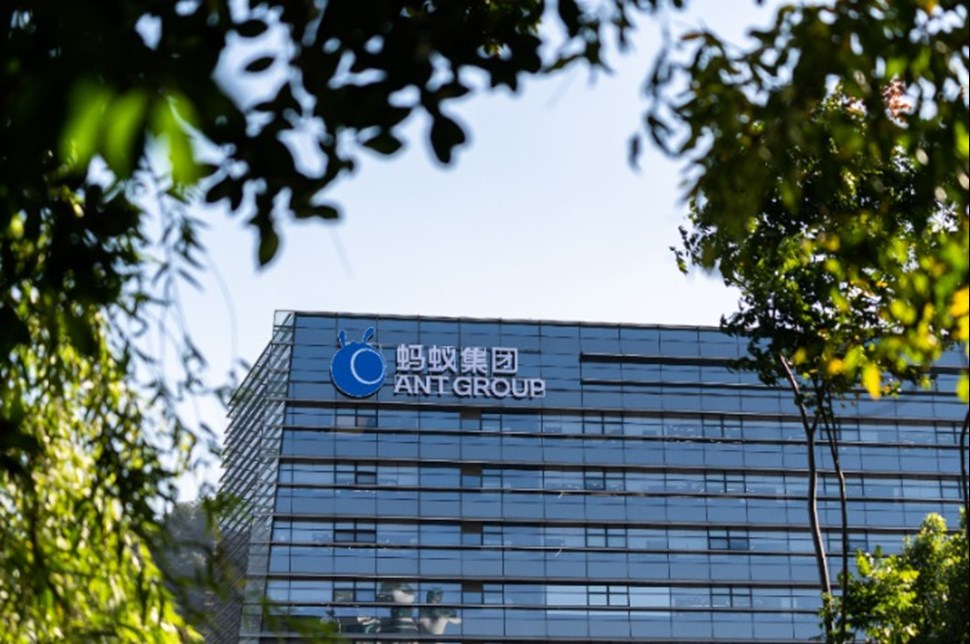Sasfin Quarterly Review – December 2020
As we close out the final quarter of 2020 investors will probably be left with mixed feelings oscillating between a sense of relief and uncertainty (more so than usual). Positive news surrounding COVID-19 vaccines, the eventual approval of the US stimulus package and low interest rates continue to drive global markets higher as the MSCI All Country World Index ended the quarter up 14%. All the while, equity valuations are now higher than a year ago, there has been a significant contraction in economies across the globe, unemployment has increased, there has been a general decline in corporate profits and many nations are experiencing a new wave of the virus.
The general increase in equity prices reflects a more optimistic outlook for economic growth and corporate profits in 2021 supported by approvals and rollouts of various vaccines. During December multiple vaccines received regulatory approvals and became available to the public. As we close out the year, 29 countries had administered over 10 million doses of the various vaccines, the vast majority of which attributable to China and the US with other European and North American nations making up the remainder of the recipients. The US Food and Drug Administration (FDA) has approved the use of both the Pfzier-BioNTech and Moderna vaccines and as we start the new year over 3 million US citizens had received doses of the vaccines, approximately 1% of the population. With the exception of Israel, who has managed to vaccinate approximately one tenth of its population, the remaining nations that received a vaccine have only managed to administer vaccines to slightly less than 1% of their population.

Covid-19 Vaccine
Unlike the gains we saw earlier in the year which were predominantly supported by the pandemic beneficiaries, specifically “Big tech” stocks (Alphabet, Amazon, Apple, Facebook and Microsoft), this time market gains were predominantly driven by stocks that fall into the “return to normality” bucket as well as those that were left behind during the pandemic. Stocks that fall into this category include cyclicals (stocks whose items or services are strongly correlated to the economy namely industrials and banks as well as stocks that were at the epicentre of the COVID storm such as hotels, restaurants, airlines and cruise ships), energy stocks (oil and natural gas), small cap stocks (specifically those situated in the US) and emerging markets.
In the US, the S&P 500 Index, a broad market index for US stocks ended the quarter 12% higher supported by progress on stimulus talks as well as the approval of and administering of vaccines. Just in time for Christmas, an agreement was reached between Democrats and Republications for a $900 billion stimulus package. Under the new package households earning less than $75,000 will receive $600 for each adult and $600 for each dependent, somewhat lower than the respective $1,200 and $500 that were disbursed in the first round. In addition, unemployment insurance will be topped up by an additional $300 per week which will persist through to mid-March 2021. In what will be one of his last acts as President, Mr Trump had initially labelled the heavily negotiated package as a “disgrace” and threatened not to support it. There was however not to be a repeat of the Grinch stealing Christmas as his threats were short-lived and he eventually signed the package into law.
This package is somewhat smaller than the $3 trillion stimulus that was provided earlier in the year but the trillions of dollar spent by the US government as well as the anticipation of more stimulus to come in 2021 has led many to question the longer term strength of the US dollar. The greenback has underperformed other currencies since introducing such extreme stimulus measures and this led many wary investors to turn to gold as a safe-haven. This saw the yellow metal breach the $2,000/ozt level earlier in the year but it has since fallen back below this key point and during the quarter the price remained relatively flat ending December at $1,893/ozt.
As an alternative to gold some have turned to Bitcoin. The cryptocurrency experienced a meteoric rise during the final quarter of 2020 climbing 167% to end the year just shy of the $30,000 level (which it subsequently breached in the new year). For some, the rapid rise in the digital currency has created a bubble which is bound to pop as it did previously in late 2017. Those on the sceptical side of the coin believe that the rise in bitcoin is based on pure speculation without any fundamental support. Flip the coin over and you will find a growing number who have warmed up to bitcoin and interestingly, support has broadened to now include backing from institutional investors such as Paul Tudor Jones and Stanley Druckenmiller. Even corporations such as PayPal, Square and Robinhood have made it easier for users to buy and sell such digital assets.
Though not quite as pronounced as the rise in digital currencies, physical commodity prices rose sharply during the quarter following positive news on the vaccine front. The S&P GSCI Industrial Metals Index rose 14% and the combination of logistical bottlenecks and stockpiling led to a 21% increase in the S&P GSCI Agriculture index. Over the quarter the price of Brent crude climbed above $50 a barrel but remains precariously positioned. The global rollout of vaccines has supported the rise in oil prices but ongoing tensions between OPEC nations Saudi Arabia and Russia over oil production as well as the renewal of lockdowns, which will dampen economic activity, continue to create fragility in the market.
While the US was greeted with a stimulus package for Christmas, Europe was served its own turkey of sorts as Britain and the European Union (“EU”) finally struck a trade deal after nine months of arduous negotiations. The deal however is far from all-encompassing. Britons have now lost the right to live and work in 27 countries. This may be especially painful for professional service providers such as doctors, vets and engineers who will need to ensure that their qualifications are recognised in each EU member state where they want to work. The current deal does not cover financial services, roughly 80% of Britain’s economy and by far its biggest export. Other negatives that Britons will now face include the prospect of cheap mobile-roaming across the continent no longer being guaranteed, increased waiting times can be expected at airports as Britons will be required to queue with other non-EU citizens and there will be no more pet passports. On the positive front, at this stage both sides have agreed there will be no tariffs or quotas on trade but companies can expect delays at the borders. The deal leaves both parties with a rather unsteady foundation and we can expect years of tweaks and adjustments to the relationship, much like what has occurred between Switzerland and the EU. UK equities appeared to react positively to the agreement and despite a renewal of lockdowns compounded by the discovery of a new potentially even more threatening strain of the COVID virus, over the quarter the FTSE 100, a broad market index for UK equities, gained 10%.
The stellar performance of big tech stocks during 2020, both in the US and China, has led to unwanted attention from governments looking to regulate sprawling operations of these behemoths. Alphabet, the parent company of Google faces an antitrust lawsuit in the US where it stands accused of holding a monopoly over internet search which it has achieved through anticompetitive contracts and conduct. Facebook has been sued in an antitrust case that accuses the social media giant of choking out competition through the acquisition of and freezing out of smaller competitors. In Europe, the EU intends to launch a digital services act which will provide a framework to regulate big tech companies. The EU has also slapped Amazon with antitrust charges over the treatment of European merchants that sell their goods over the e-commerce giant’s platform. Amazon is accused of gathering non-public data of merchants’ sales to boost its own-label products. In addition, Amazon is accused of giving preferential treatment on its site to its own products at the expense of competing merchant products.
China has taken a much firmer stance against the power garnered by its tech giants with Alibaba and its CEO Jack Ma feeling the full force of the ruling party’s power. The 5th of November was expected to be a landmark date for the e-commerce tycoon with the listing of Alibaba’s associate, the Ant Group, holding company of Alipay. However, on the eve of the listing, Chinese regulators stated there had been a ”significant change” in the regulatory environment which saw the IPO suspended. This was merely a sign of things to come for Mr. Ma.

The Ant Group
Instead of dining on turkey like Boris Johnson and Ursula von der Leyen, Jack Ma was left with a lump of coal in his stocking as Chinese regulators began to take action against the billionaire’s empire. Beijing’s market regulator, the State Administration for Market Regulation, announced that it had launched an antitrust investigation into Alibaba. The antimonopoly regulator said that it would investigate reports which had suggested that Alibaba pressures merchants who sell goods on its platform not to sell on competitor’s platforms such as JD.com and Pinduoduo, both backed by another Chinese tech giant, Tencent. In addition, China’s central bank and regulatory agencies responsible for securities, banking and insurance announced that they would urge the Ant Group to implement financial regulations and rules. Regulators are concerned with the Ant Group’s unsecured online-lending model which could potentially represent a “systematic risk” for the Chinese financial system. The Chinese central bank has stated that it would prefer to see the Ant Group “return to its origins” as a payment services provider as well as “rectify” its credit lending and wealth operations.
The listing of the Ant Group would have been the largest IPO in history at $34 billion. Even without this mega listing, 2020 has seen the most money raised through equity listings in over a decade. Globally, companies raised close to $300 billion with more than half raised on US stock exchanges. The recent listings of DoorDash, a US-based meal delivery company (think Mr. Delivery or Uber Eats) and Airbnb, a vacation rental online marketplace, caused many investors to experience flashbacks of the dotcom mania in the late 1990’s. Both DoorDash and Airbnb experienced massive “pops” on the days that their shares started trading with the pair closing 86% and 113% higher respectively. DoorDash now has a market cap that exceeds Yum Brands, the company that owns KFC, Pizza Hut and Taco Bell. Airbnb is now worth more than the combined value of Marriot International, Hilton Worldwide Holdings and Hyatt Hotels.
The South African rand has experienced a roller coaster year. After nearly reaching R20 to the dollar earlier in the year the rand closed out 2020 at R14.65 to the dollar. With South Africa currently experiencing its second wave of the virus and a recommencement of a stricter lockdown many may be wondering what is spurring the appreciation in the local currency. One factor would be the dollar weakness as discussed previously. Investors are also attracted to the higher interest rates offered by South Africa. Interest rates are at close to zero or even negative in developed markets and after subtracting inflation South Africa offers an attractive real interest rate compared to other emerging markets. As mentioned, one of the categories of stocks that has been powering the gains seen in global equities has been emerging markets. The local South African market has been a beneficiary of this trend with the JSE All Share Index closing 9% higher over the quarter. Keeping with this change in trend, South African cyclicals had strong gains over the quarter with the JSE Banks Index, General Retailers Index and Industrials Index up 26%, 22% and 19% respectively. Weighing down on the performance of the local market were gold miners that declined due to the stronger rand and flat gold price leading to the JSE Gold Mining Index declining 25% over the quarter. The Chinese antitrust probe into its tech sector has also weighed on Tencent which in turn has flowed through to both Prosus and Naspers. The SA-listed tech counters ended the final quarter in positive territory though events surrounding the antitrust investigation led to a sharp pull-back in their respective share prices resulting in both underperforming the overall JSE.
As we begin 2021, the 20th of January will mark the first major event of the calendar year, that being the inauguration of president-elect Joe Biden as the 46th president of the United States of America. In the lead up to his inauguration there was a small matter of two run-off elections that took place in Georgia. Neither Democrat nor Republication senate candidates were able to obtain 50% of the votes during the election held in November and now Georgian voters must return to the polls to once again decide. At stake were two seats for the US senate. Both Democratic candidates were victorious in a close fought election. The chamber now has a 50-50 split with the incoming vice-president, Kamala Harris, having the tiebreaking vote meaning that the Democrats will now control the US senate. Democrats now control both houses, those being the Senate and the House of Representatives, as well as the Presidency which will provide Mr. Biden with a better chance of implementing his agenda regarding climate change and infrastructure spend.
I think most will agree that 2020 was an awful year and sadly it will forever be etched into our minds, never to be forgotten. Though equity markets have recovered (for the most part) ending the year on a positive note and the rollout of the vaccine will instil a sense of hope into investors, unfortunately, as we close out the final chapter of the year we find ourselves once again hunkered down at home under harsher lockdown conditions. In what would normally be a festive period I believe the words from Taylor Swift’s new chart-topping album say it best: ‘tis the damn season.








